Retro Replay Review
Gameplay
Magna Braban: Henreki no Yūsha offers a classic Japanese-style RPG experience that balances nostalgia with modern convenience. The party-based combat system unfolds through a compelling blend of automated action and strategic intervention. Players select overarching strategies—ranging from melee-focused assaults to magical bombardments—and watch Alex, Gina, and Getz execute these commands in an isometric battlefield.
(HEY YOU!! We hope you enjoy! We try not to run ads. So basically, this is a very expensive hobby running this site. Please consider joining us for updates, forums, and more. Network w/ us to make some cash or friends while retro gaming, and you can win some free retro games for posting. Okay, carry on 👍)
Random encounters on both the overworld and dungeon maps keep explorers on their toes. As you wander through towns or trek across verdant plains, surprise skirmishes can spring up at any moment. These battles reward experience points and gold, encouraging players to refine their party’s tactics and upgrade equipment regularly at inns and shops found across the realm.
One standout feature is the ability to pause combat at any time. This freeze-frame mechanic grants you the opportunity to reassess the flow of battle and adjust each character’s strategy mid-fight. Whether it’s switching Gina from defensive magic to high-damage elemental spells or directing Getz to adopt hit-and-run tactics with ranged weapons, this level of control injects tactical depth into what might otherwise feel like a straightforward auto-battle system.
Beyond combat, the game’s exploration loop remains engaging thanks to its varied environments and NPC interactions. Conversations in bustling towns, hidden treasure chests in isolated dungeons, and choice-driven mini-events all contribute to a sense of adventure and discovery. Though the foundational mechanics are rooted in RPG traditions, Magna Braban’s careful balance of automation and player agency ensures that every battle feels purposeful.
Graphics
Visually, Magna Braban leans into a charming pixel-art style that evokes classic 16-bit RPGs while subtly incorporating modern effects. Character sprites are crisp and expressive, with fluid animations that bring each warrior’s swing or spellcasting flourish to life. The isometric battlefields benefit from well-defined tiles, giving every fight a clear sense of spatial awareness.
The overhead town and dungeon maps boast a warm color palette, making village markets and forest glades feel inviting rather than merely functional. Lighting effects—such as flickering torches in dimly lit corridors or the brilliance of a fireball spell—offer visual variety without overshadowing the core retro aesthetic. Transition animations between exploration and battle screens remain smooth, maintaining immersion as you traverse the kingdom of Anatea.
On the overworld map, landmarks like castles, mountain ranges, and coastal ports are easily distinguishable, helping you chart your journey with minimal backtracking. Minor details, such as waving flags on castle turrets or animated water ripples near rivers, add subtle life to the environment. While the visual design doesn’t push the boundaries of high-definition rendering, it excels in delivering a cohesive and nostalgic presentation.
Performance-wise, Magna Braban runs consistently at a steady frame rate, even when large monster armies swarm onto the battlefield. Load times between areas are kept brief, ensuring that the game’s pacing remains brisk. Whether you’re playing on a handheld console or a desktop monitor, the graphical fidelity strikes a pleasing balance between retro charm and contemporary polish.
Story
The narrative of Magna Braban: Henreki no Yūsha weaves a classic tale of destiny, courage, and camaraderie. It begins with the harrowing assault of the Demon King’s forces, which set young Alex on a path from humble shepherd’s son to knight of Anatea. His early defeat in the Arena tournament alongside Gina and Getz underscores their inexperience, yet foreshadows the resilience that will carry them through the Kingdom’s darkest hour.
As Alex, Gina, and Getz narrowly escape the Demon King’s surprise massacre at the Arena, they are unexpectedly commissioned by the King to form the realm’s frontline defense. This twist of fate not only provides compelling dramatic tension but also cements the trio’s bond as they embark on their quest. Each character brings a distinct personality: Alex’s unwavering idealism, Gina’s thoughtful mysticism, and Getz’s battle-hardened pragmatism.
The game’s pacing thoughtfully alternates between high-stakes confrontations and quieter character-driven moments. Village elders recount tragic war stories, merchants offer colorful side quests, and fleeting NPC interactions reveal threads of lore that enrich the world. While some plot points follow familiar RPG tropes—ancient artifacts, hidden prophecies, and dark betrayals—the earnest dialogue and well-timed plot twists keep the journey engaging from start to finish.
Moreover, the overarching theme of emergent heroism resonates throughout the adventure. Watching Alex evolve from an uncertain aspirant into a confident leader injects every battle and cutscene with emotional weight. Gina and Getz’s personal arcs—dealing with past regrets and moral dilemmas—add layers of depth that elevate the story beyond a simple “good versus evil” framework.
Overall Experience
Magna Braban: Henreki no Yūsha succeeds in offering a well-rounded RPG experience that will please both series veterans and newcomers. Its blend of automated combat and strategic pauses creates a satisfying middle ground between turn-based classics and modern action RPGs. Exploration feels purposeful, with random battles that offer meaningful rewards rather than mere padding.
The audiovisual presentation complements the gameplay effectively. Retro-inspired graphics and a stirring chiptune soundtrack work in harmony to evoke a sense of adventure across Anatea’s sprawling landscapes. Performance remains rock-solid throughout, and the intuitive UI ensures that inventory management, skill assignments, and strategic adjustments never become cumbersome.
The narrative stakes rise steadily, and the chemistry between Alex, Gina, and Getz infuses each quest with emotional resonance. Secondary characters and side quests are given enough attention to feel relevant, enhancing the game’s sense of scale without overwhelming the main storyline. While the overarching plot follows familiar RPG conventions, its earnest execution and well-timed reveals maintain player investment.
Ultimately, Magna Braban: Henreki no Yūsha stands out as a lovingly crafted homage to classic JRPGs, updated with quality-of-life features that respect players’ time and preferences. Whether you’re drawn to its strategic combat, pixel-perfect visuals, or engaging hero’s journey, this title delivers a robust adventure worthy of any RPG enthusiast’s collection.
 Retro Replay Retro Replay gaming reviews, news, emulation, geek stuff and more!
Retro Replay Retro Replay gaming reviews, news, emulation, geek stuff and more!
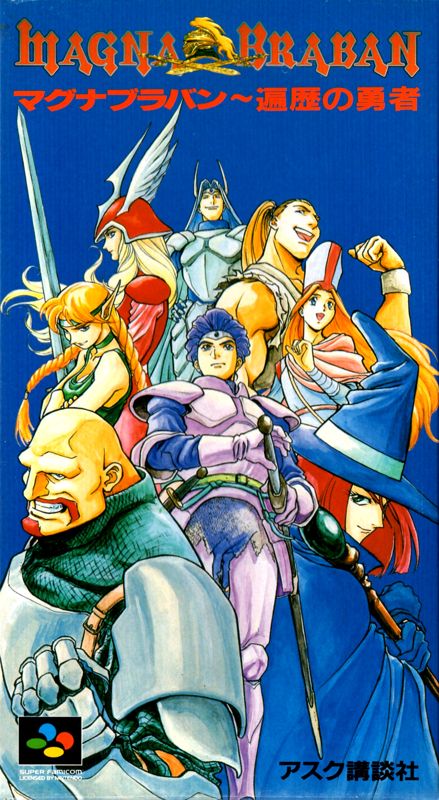
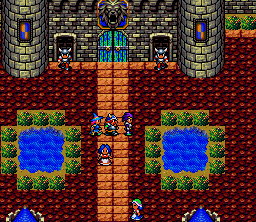
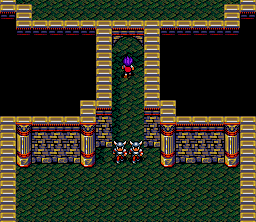
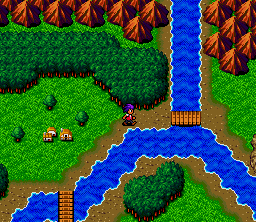
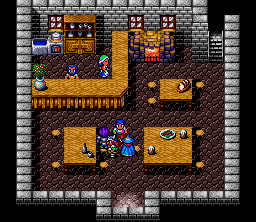




Reviews
There are no reviews yet.